Why you can trust Tom's Hardware
Going up in resolution to 2560 x 1440 and down to medium settings, we find the MSI GTX 1660 Super Gaming X is again more than capable of running at these settings. Frames per second ranged from 53.3 (Metro again) up to 119.6 in Final Fantasy XIV. Outside of Metro, all titles run at 60 fps or more (yes, I am counting Ghost Recon: Breakpoint as 60 fps).
When comparing the EVGA GTX 1660 Super SC Ultra, we again see a virtual tie with the MSI card averaging 81.8 fps across all titles and the EVGA 81.5 fps. The MSI is negligibly faster in seven of 11 titles, with the largest difference still less than 5 fps in Far Cry 5. Adding the EVGA GTX 1660 Ti XC in, we find it is faster overall, by around 1%--not much to speak of. The 1660 Super cards really rendered the 1660 Ti obsolete, at least these higher clocked models.
As above, when comparing the AMD 5500 XT, it loses out by quite a bit, though it is nearly $100 cheaper. The 5600 XT, on the other hand, is about 23% faster and costs $10-$20 more. Ouch. In today’s market at current pricing, the GTX 1660 Super can be a tough sell unless you are looking at a lower-tier SKU .
The Division 2
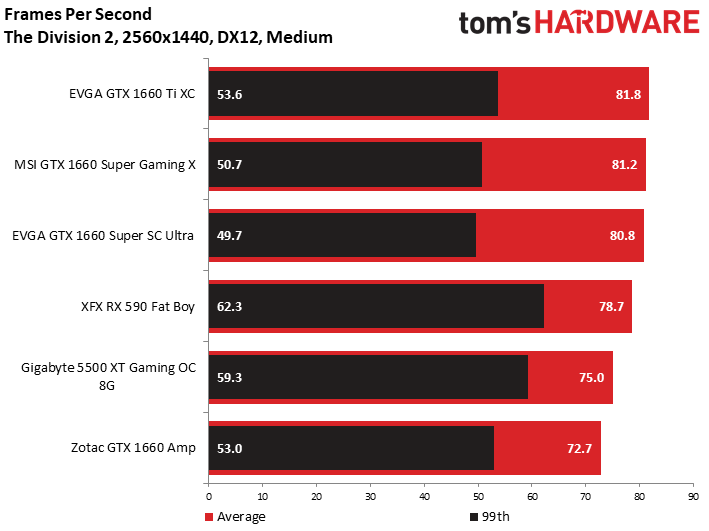
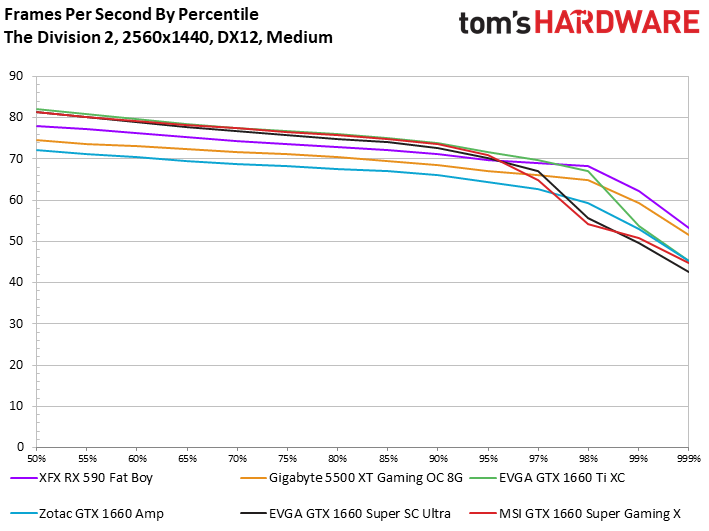
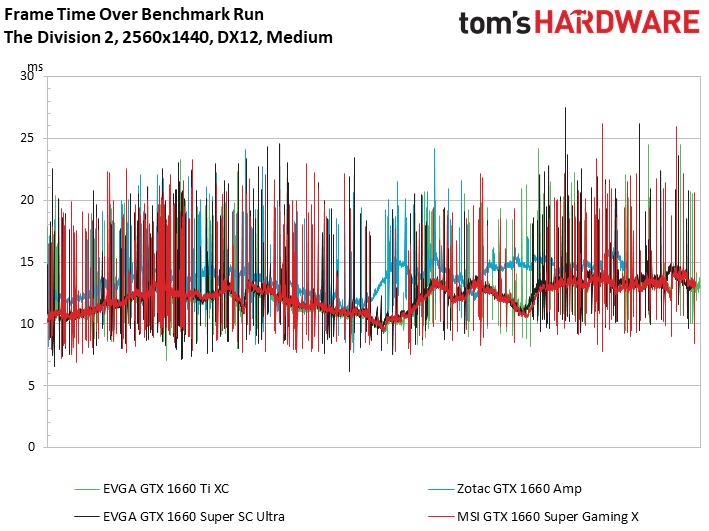
Ghost Recon: Breakpoint
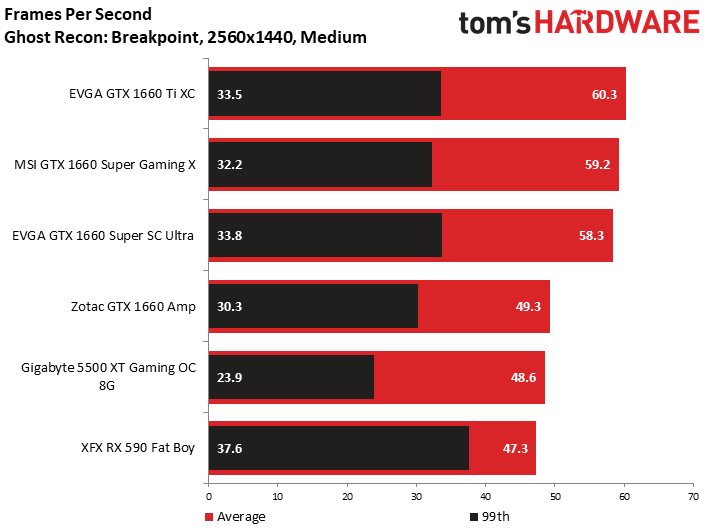
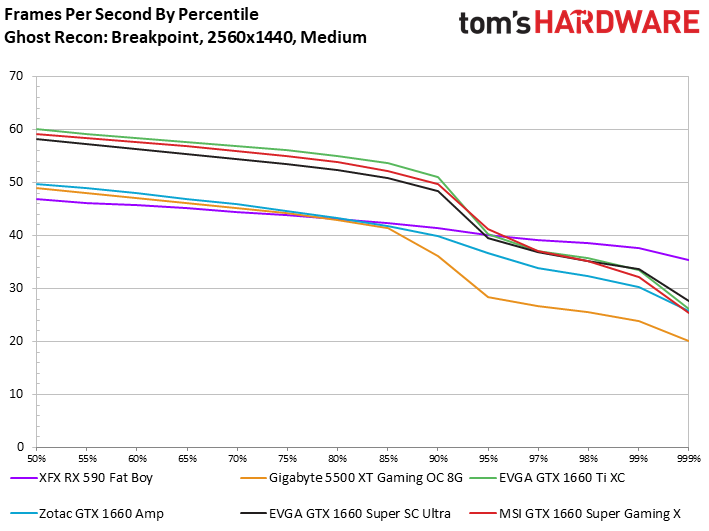
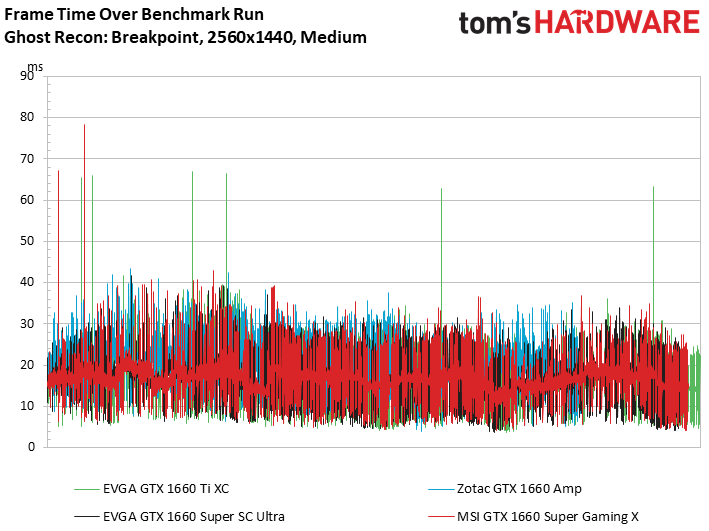
Borderlands 3
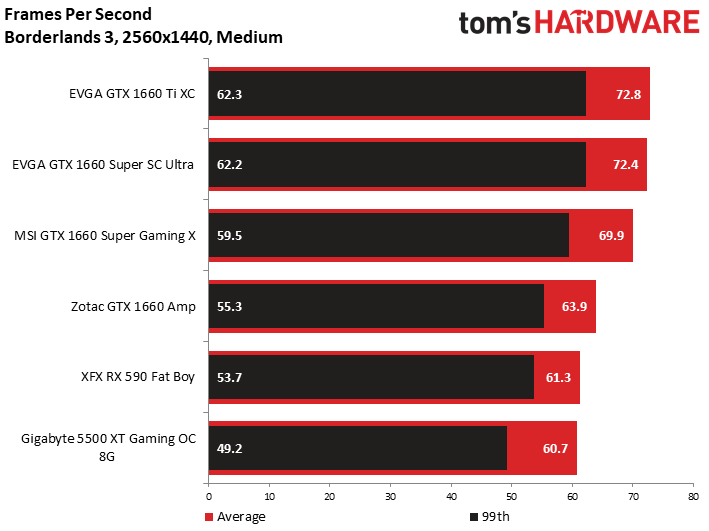
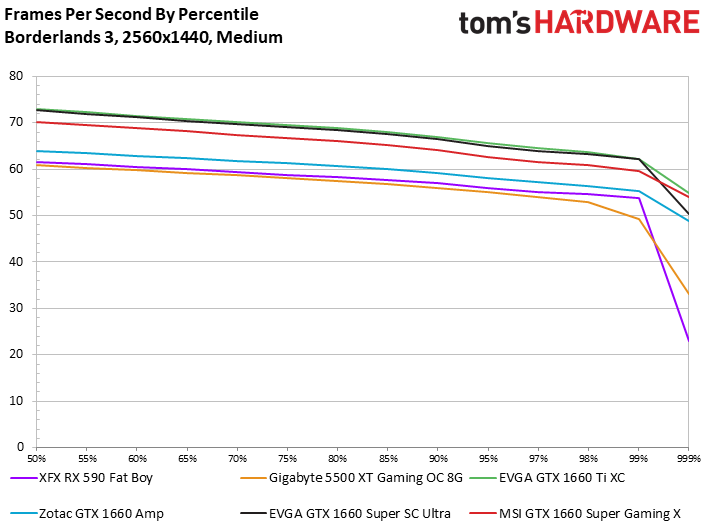
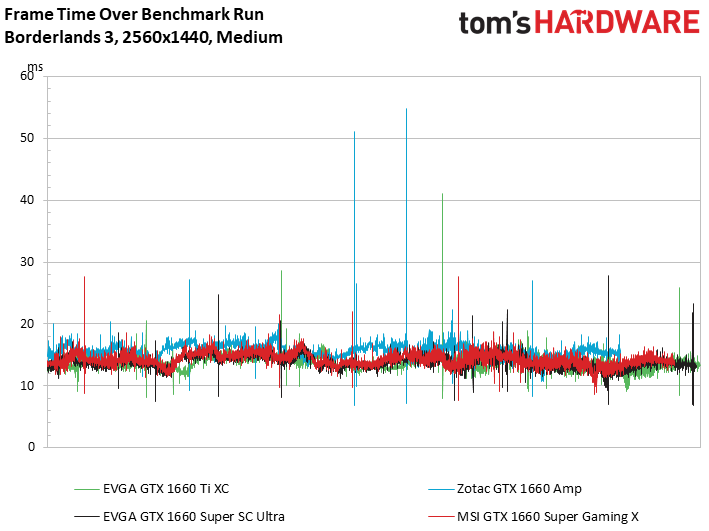
Gears of War 5
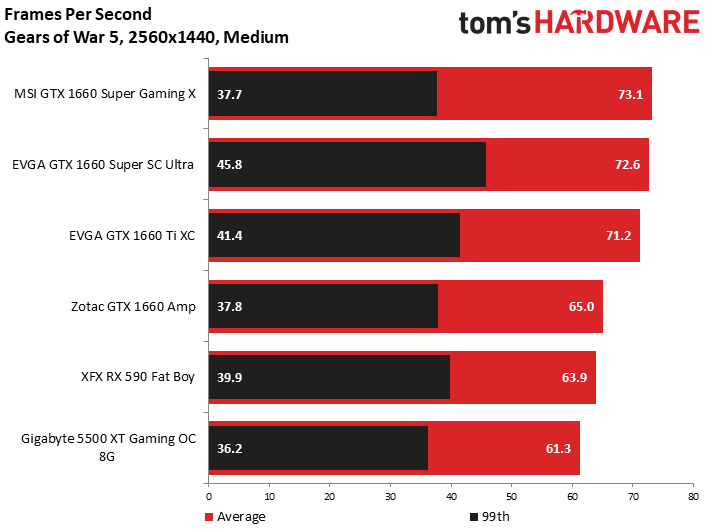
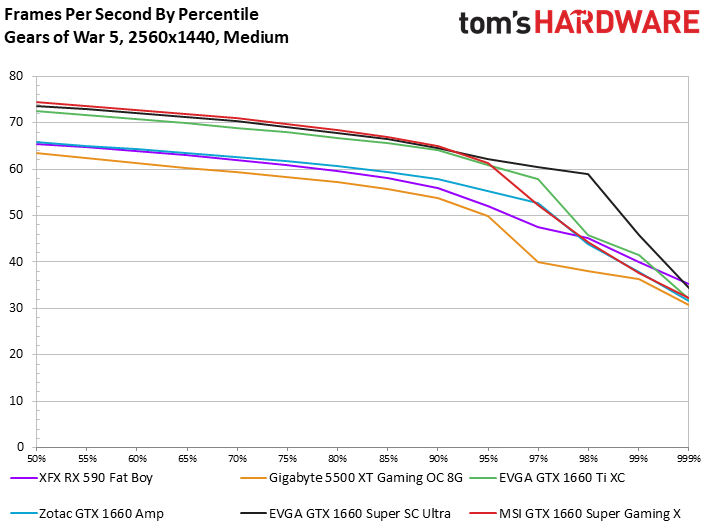
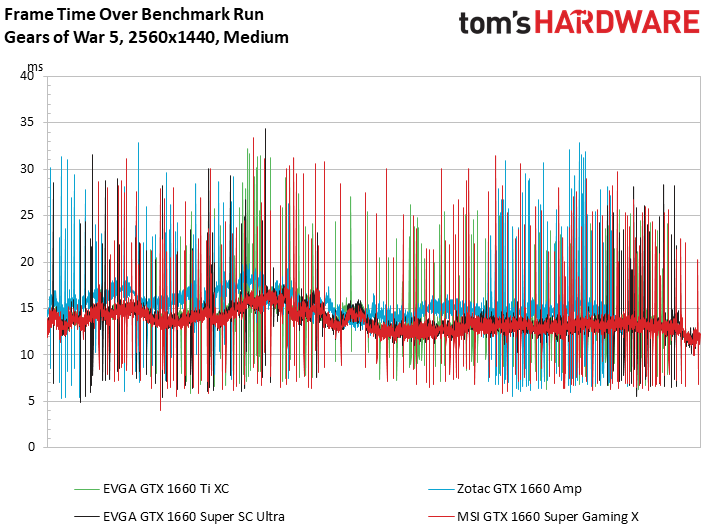
Strange Brigade
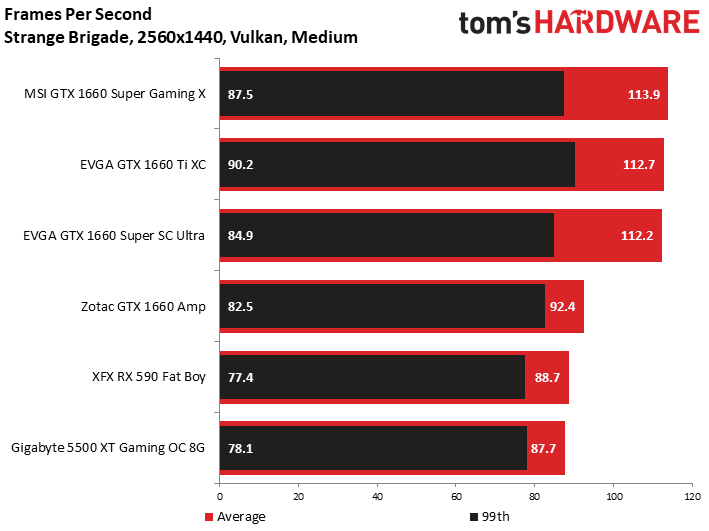
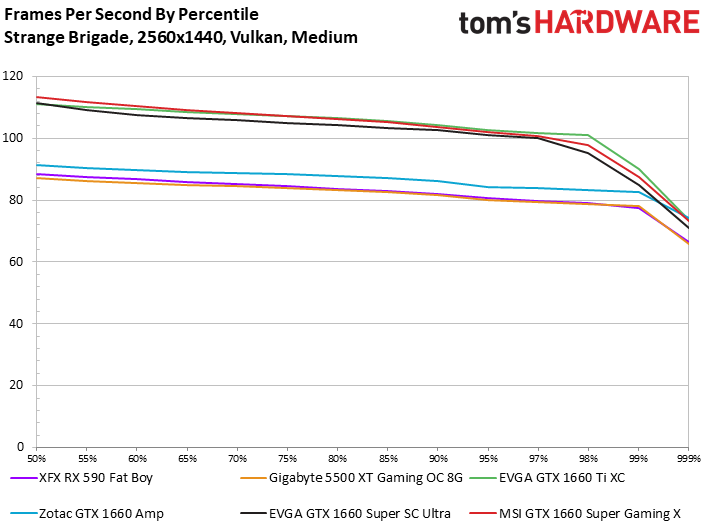
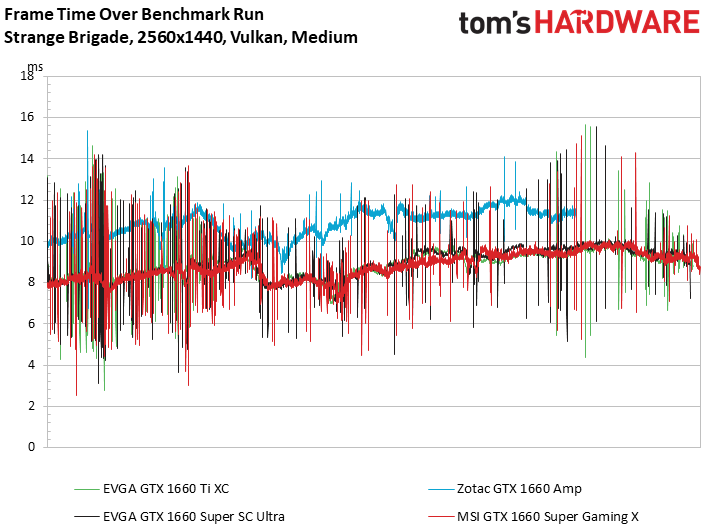
Shadow of the Tomb Raider
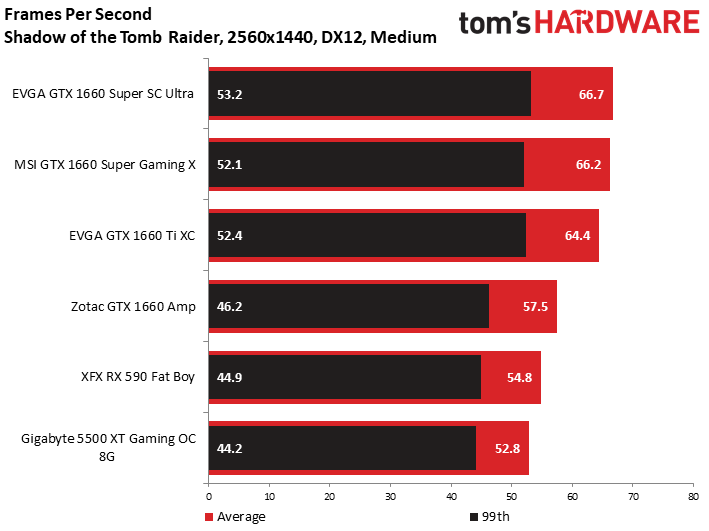
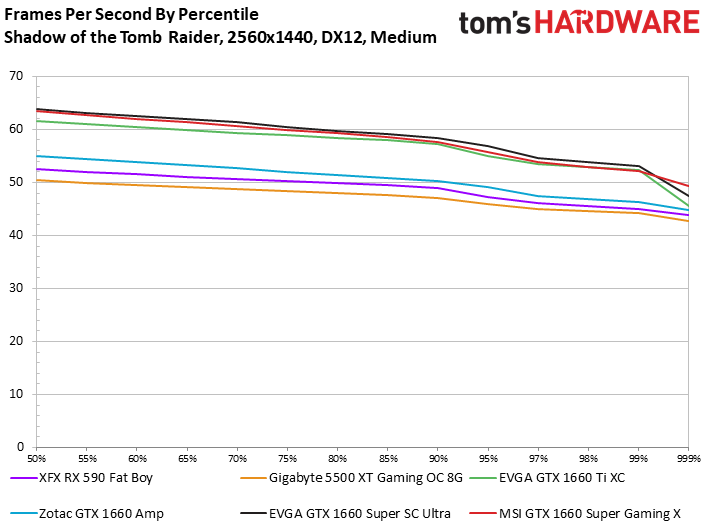
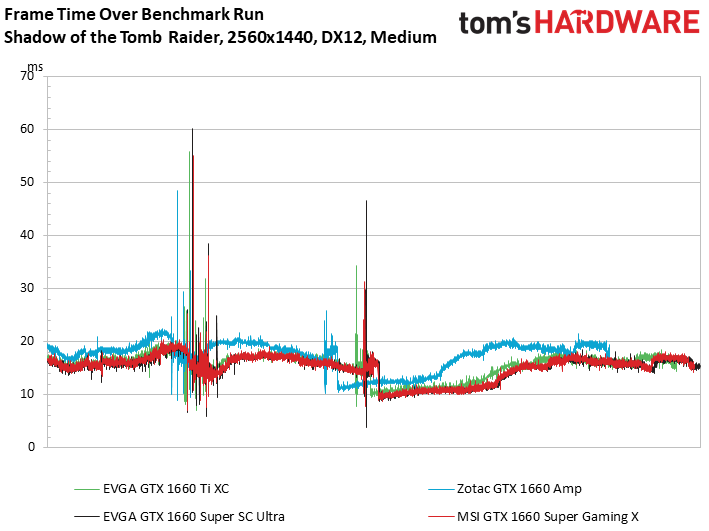
Far Cry 5
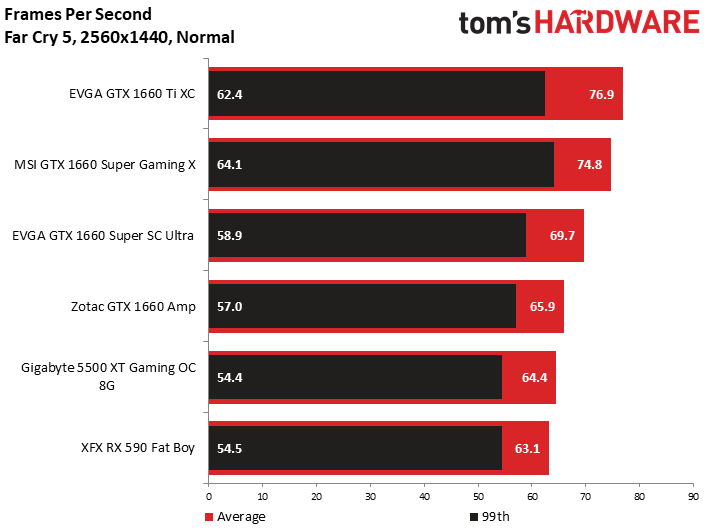
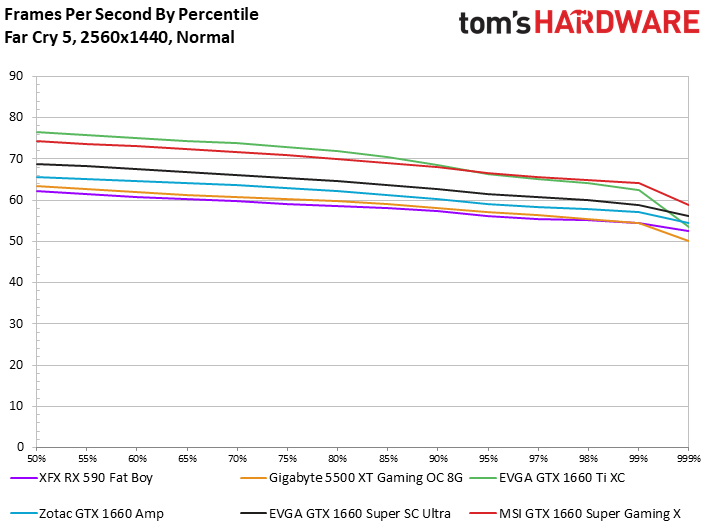
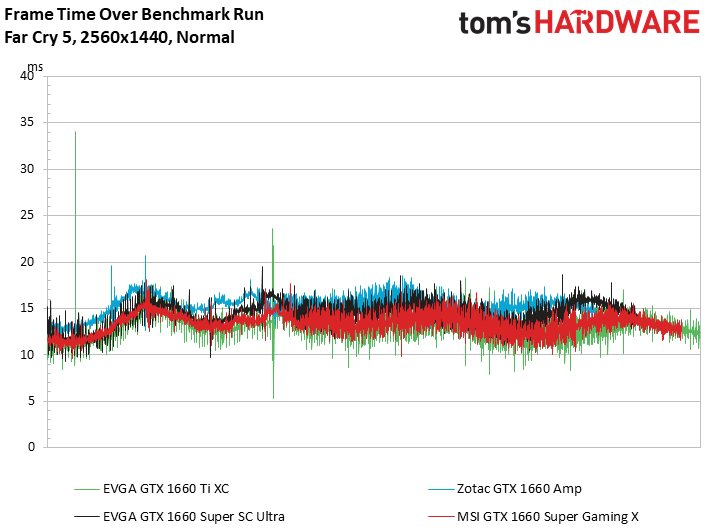
Metro: Exodus
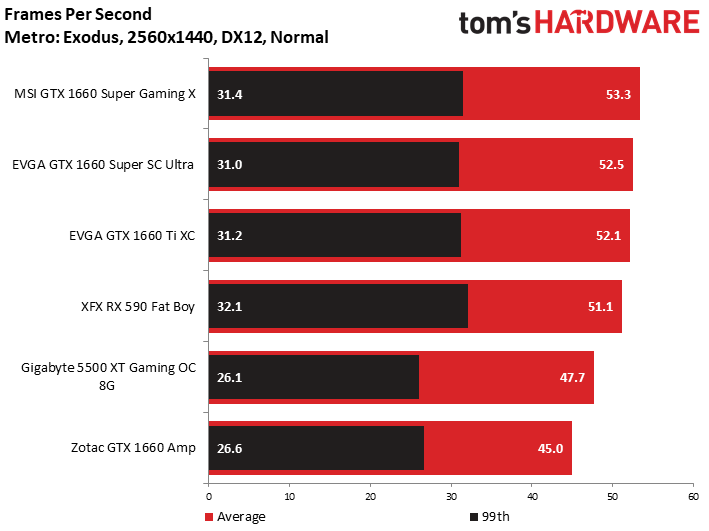
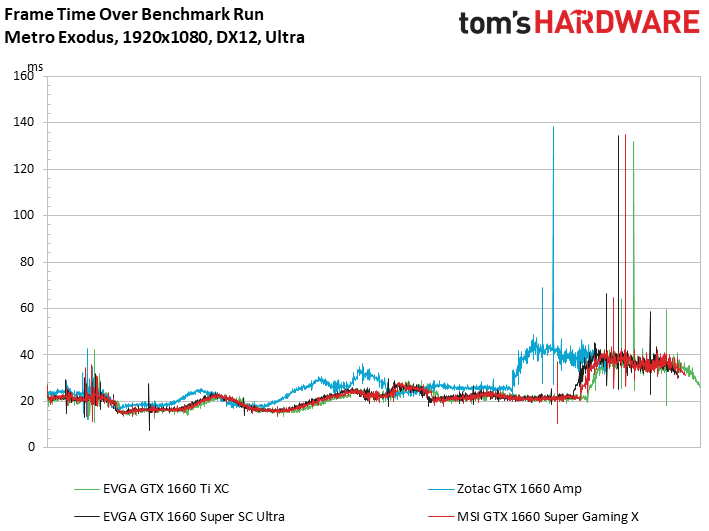
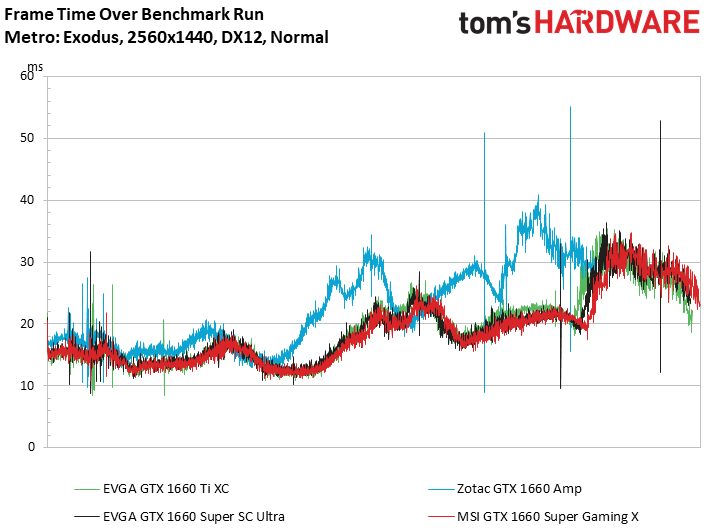
Final Fantasy XIV: Shadowbringers
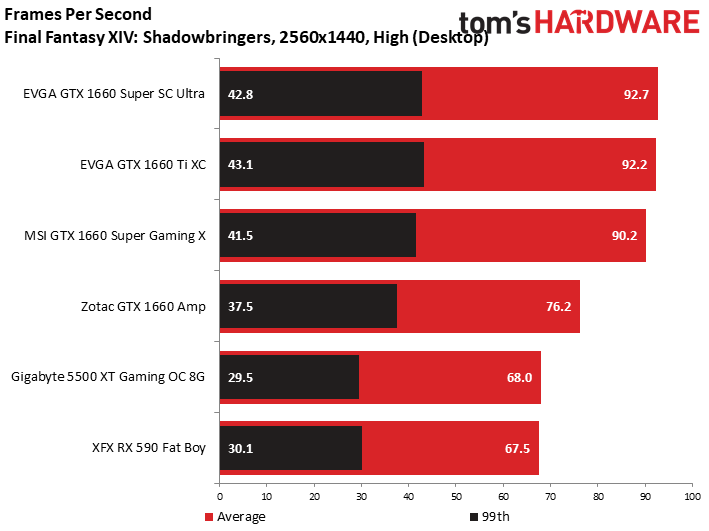
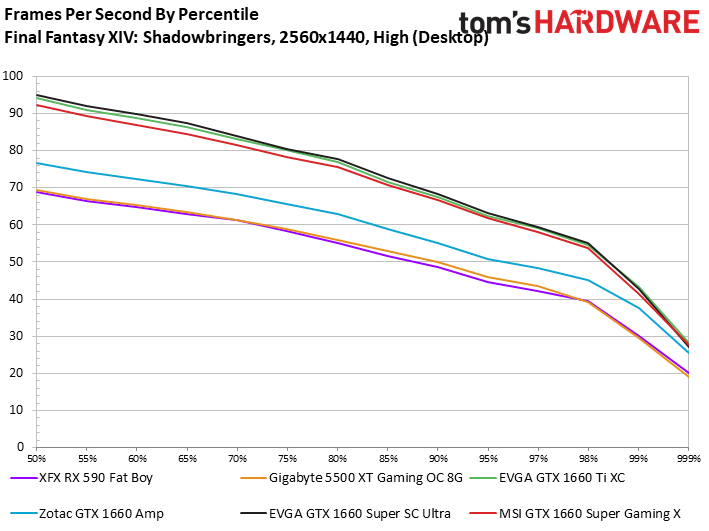
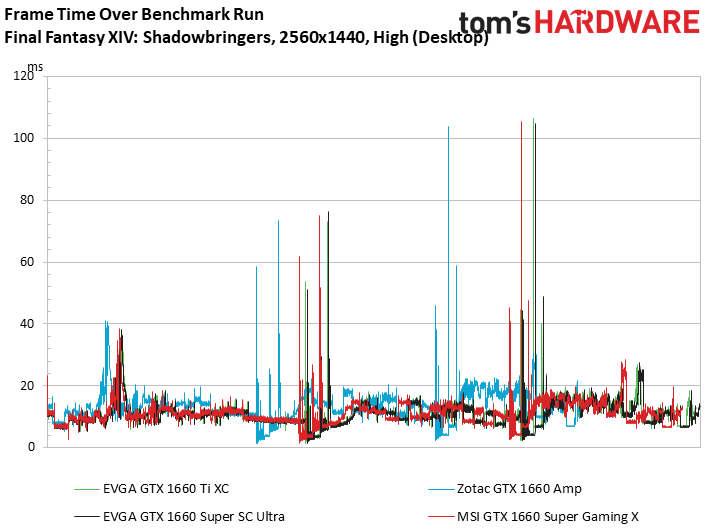
Forza Horizon 4
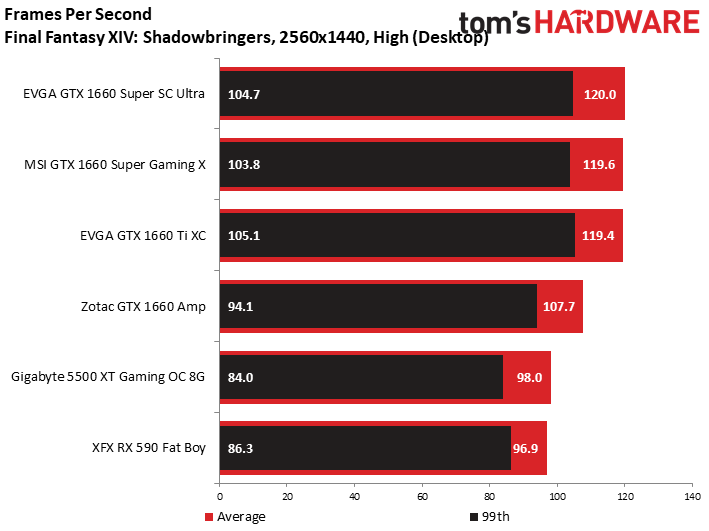
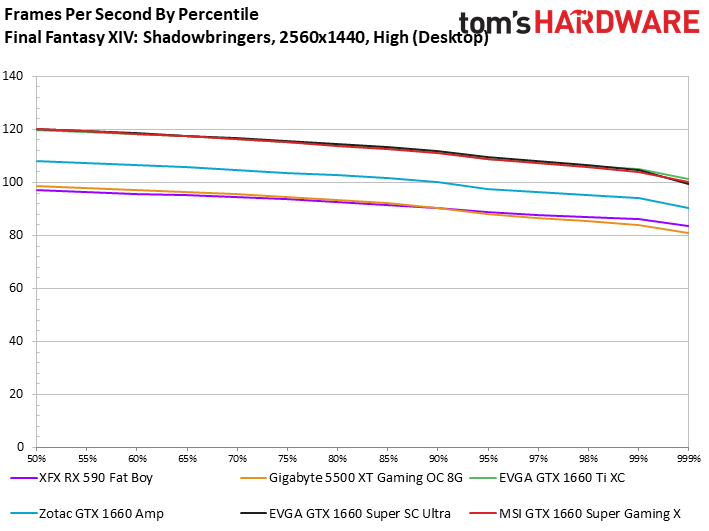
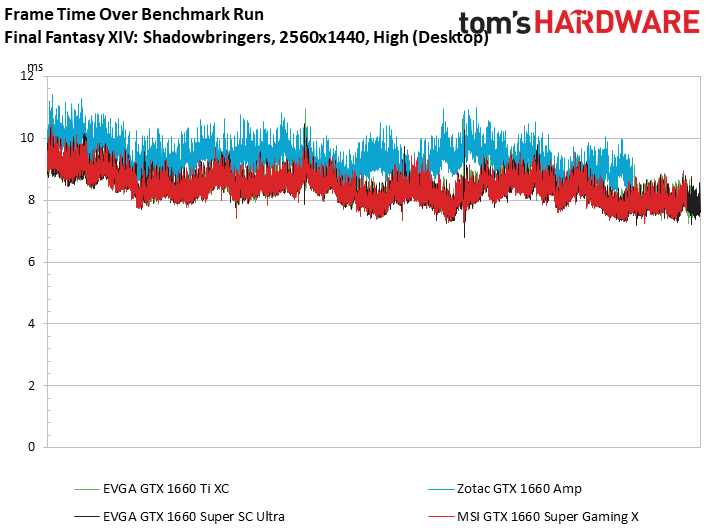
Battlefield V
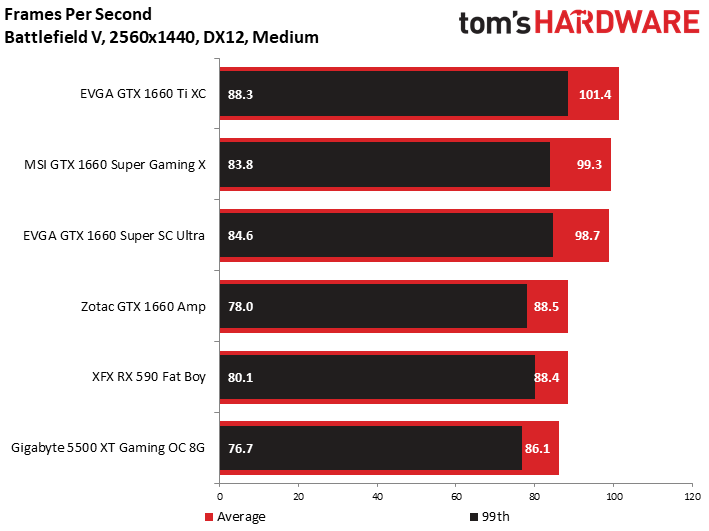
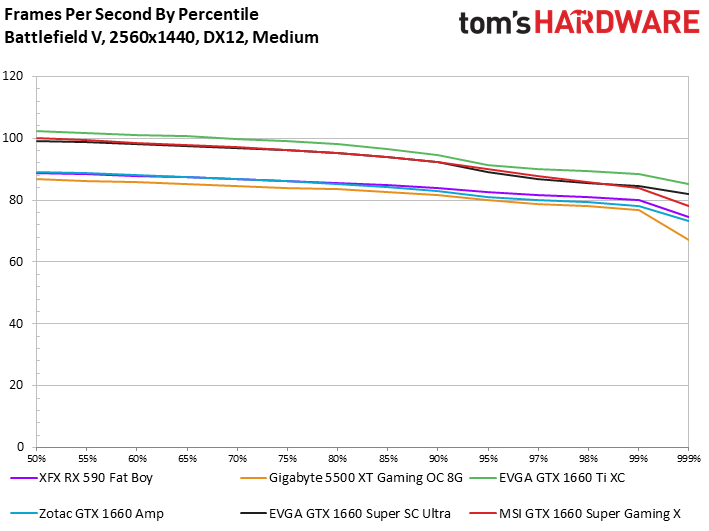
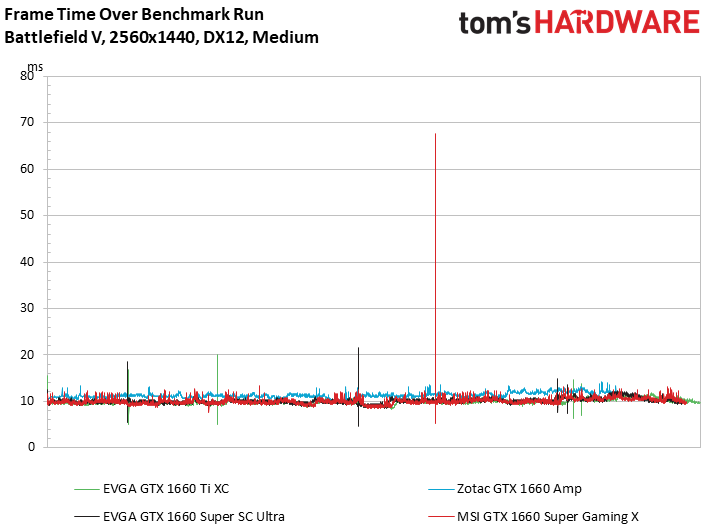
MORE: Best Graphics Cards
MORE: Desktop GPU Performance Hierarchy Table
MORE: All Graphics Content
Get Tom's Hardware's best news and in-depth reviews, straight to your inbox.
Current page: Performance Results: 2560 x 1440 (Medium)
Prev Page Performance Results: 1920 x 1080 (Ultra) Next Page Power Consumption, Fan Speeds, Clock Rates and Temperature
Joe Shields is a staff writer at Tom’s Hardware. He reviews motherboards and PC components.